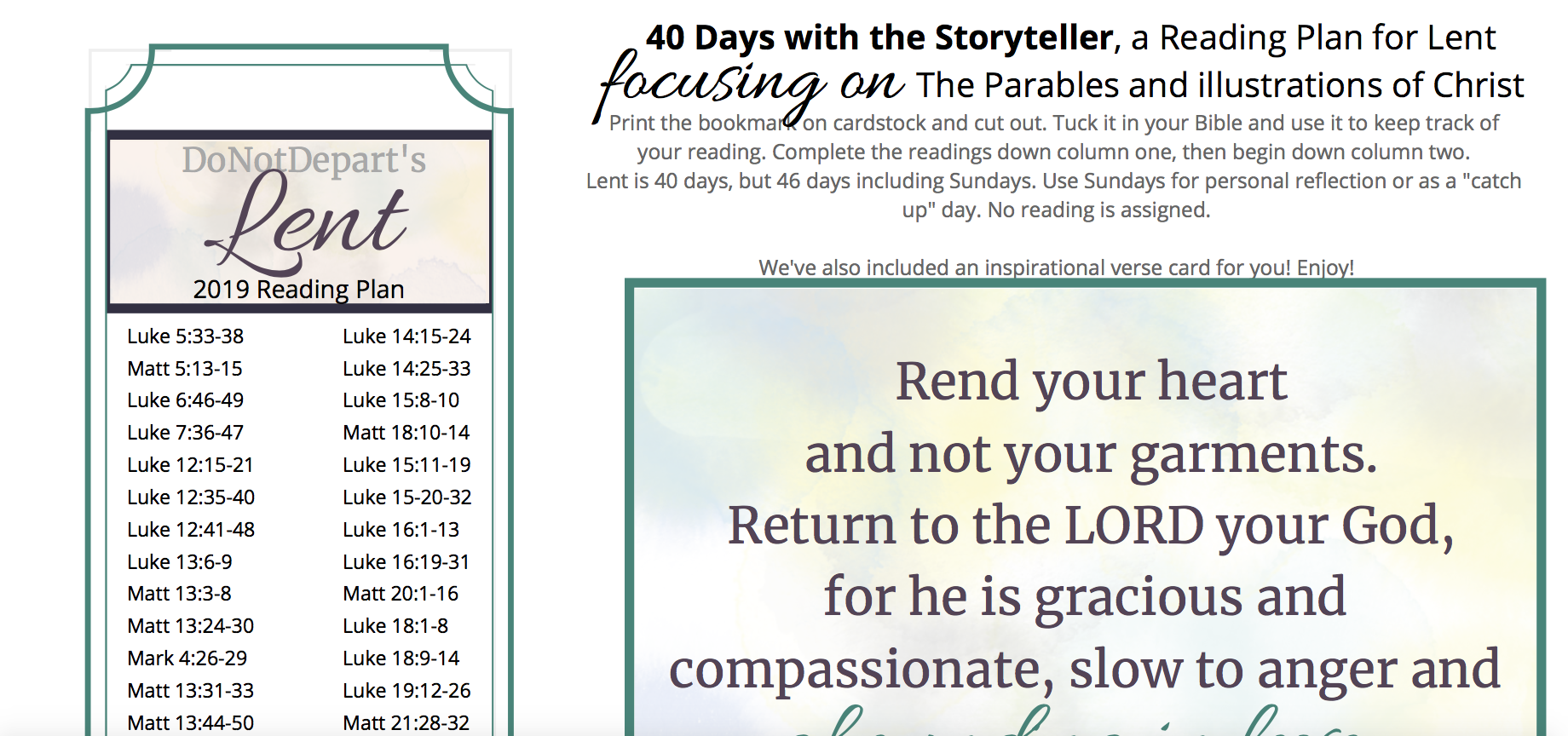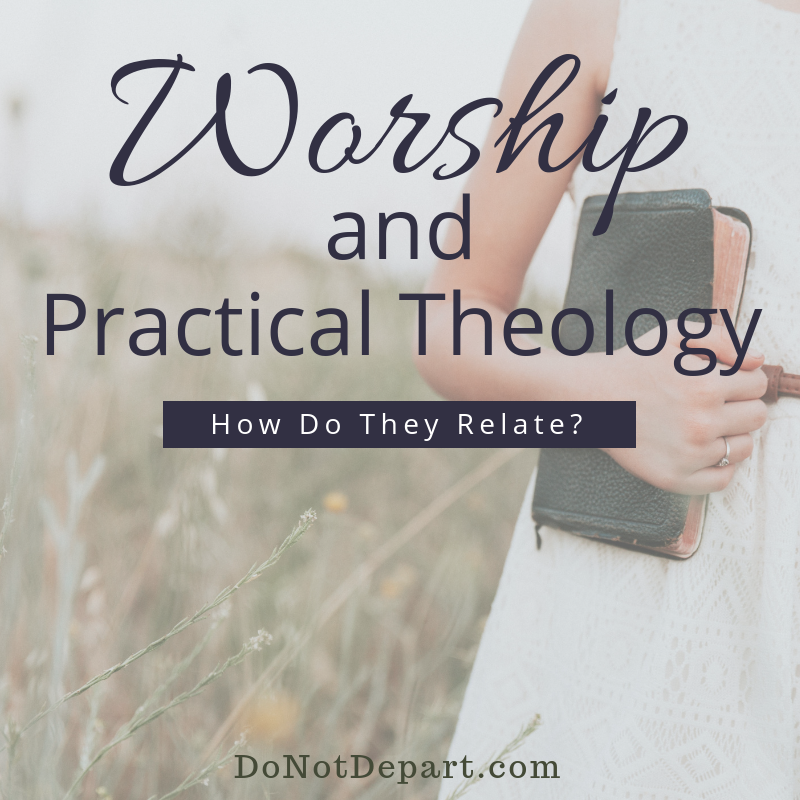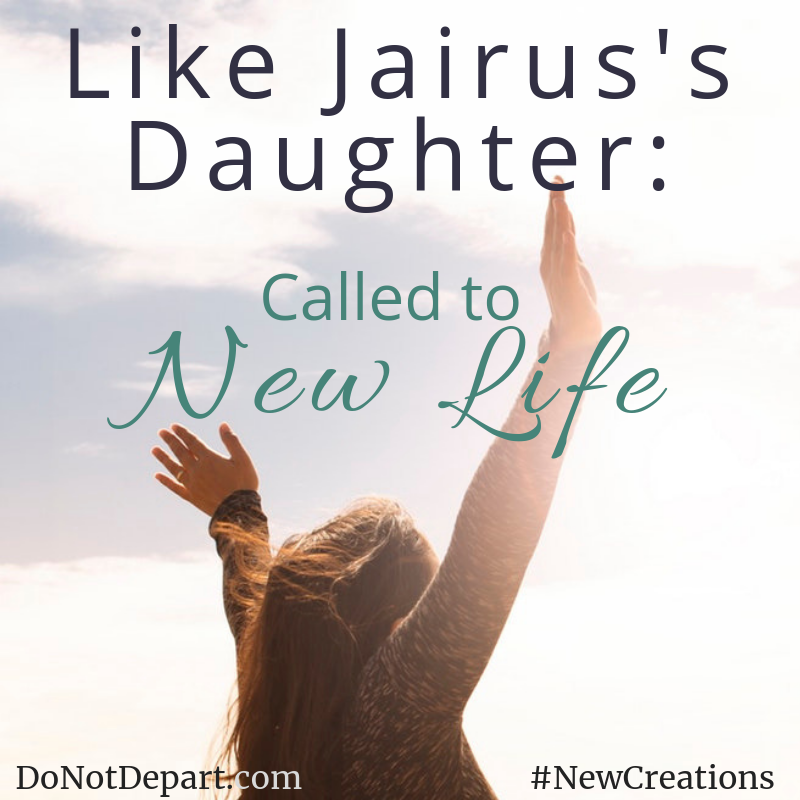Thank you for joining us for “How He Loves Us: God Pursues the Underserving.” This is post covers the readings for days 32-34 in our Lenten series, 40 Days with The Storyteller.
Luke 19:12-26 The Ten Minas – Make Good Use of What God’s Given
He said therefore, “A nobleman went into a far country to receive for himself a kingdom and then return. 13Calling ten of his servants,a he gave them ten minas,b and said to them, ‘Engage in business until I come.’ 14But his citizens hated him and sent a delegation after him, saying, ‘We do not want this man to reign over us.’ 15When he returned, having received the kingdom, he ordered these servants to whom he had given the money to be called to him, that he might know what they had gained by doing business. 16The first came before him, saying, ‘Lord, your mina has made ten minas more.’ 17And he said to him, ‘Well done, good servant!c Because you have been faithful in a very little, you shall have authority over ten cities.’ 18And the second came, saying, ‘Lord, your mina has made five minas.’ 19And he said to him, ‘And you are to be over five cities.’ 20Then another came, saying, ‘Lord, here is your mina, which I kept laid away in a handkerchief; 21for I was afraid of you, because you are a severe man. You take what you did not deposit, and reap what you did not sow.’ 22He said to him, ‘I will condemn you with your own words, you wicked servant! You knew that I was a severe man, taking what I did not deposit and reaping what I did not sow? 23Why then did you not put my money in the bank, and at my coming I might have collected it with interest?’ 24And he said to those who stood by, ‘Take the mina from him, and give it to the one who has the ten minas.’ 25And they said to him, ‘Lord, he has ten minas!’ 26‘I tell you that to everyone who has, more will be given, but from the one who has not, even what he has will be taken away. (Luke 19:12-26)
Have you ever given someone a gift only to have it come back to you a few years later, unused? You know, the dreaded “regift” that returns to you, when the regifter forgot that you were the original giver?
It’s happened to me. It gave me a really good laugh since I am not one to get my feelings hurt easily! But I have to admit that it did puzzle me a bit. Why wasn’t the gift deemed useful in the first place? It put me on a quest to finding a more appropriate gift for that person the next time around.
The Parable of the Ten Minas teaches us that God gives each of us a gift (usually interpreted as the gift of life). It is our duty to use our lives and not sit idly, wasting His investment.
We shouldn’t be “regifters” who keep what God has given us, do nothing with it, and then return it to Him unused! Rather, we should invest ourselves in order to reap for His kingdom.
In turn, He will bless us for our wisdom in using our lives for His sake.
Focus: My entire life is a gift. I am a steward of what God has given me; I should use my life for His glory.
Question: Are you investing what He has given you to reap more to the glory of God?
Research:Why were all the servants in this story given the same gift, as opposed to the differing gifts in the Parable of the Talents? (Found in Matthew 25:14-30)

Matthew 21:28-32 The Two Sons – Rebellion and Obedience
28“What do you think? A man had two sons. And he went to the first and said, ‘Son, go and work in the vineyard today.’ 29And he answered, ‘I will not,’ but afterward he changed his mind and went. 30And he went to the other son and said the same. And he answered, ‘I go, sir,’ but did not go. 31Which of the two did the will of his father?” They said, “The first.” Jesus said to them, “Truly, I say to you, the tax collectors and the prostitutes go into the kingdom of God before you. 32For John came to you in the way of righteousness, and you did not believe him, but the tax collectors and the prostitutes believed him. And even when you saw it, you did not afterward change your minds and believe him. (Matthew 21:28-32)
When my older two girls were young my husband and I realized this about them: Our oldest daughter, who is serious and responsible, almost always did what was expected even if she grumbled or complained about it. The younger is sweet and fun-loving and had great intentions, but often didn’t do what she was supposed to. (Hello, distraction and shiny objects!)
The parable of the two sons could be told by many parents, right? A father asks his two kids to work. One says no, but changes his mind. The other says yes, but doesn’t go. It doesn’t sound like much out of the ordinary, does it?
But Jesus shows us that what is profound here is God, not mankind. Mankind promises and doesn’t fulfill. We change our minds. We say “no” when we should say “yes.” And we say “yes” when we don’t mean it.
God surprises us by accepting people into His kingdom who don’t look like they measure up. Tax collectors (about on the same level as traitors in the Jewish opinion of the day) and harlots? This is certainly not who the Jews thought would inherit the kingdom. They were inwardly rebellious and looking only at the outward appearance of obedience and not at the heart.
Focus: God is more concerned with the intentions of the heart than on the outward appearances of obedience.
Question: Which of the two sons do you identify with? Why?
Research: Who did the two sons in this parable represent? What was Jesus saying about them?
Matthew 21:33-46 the Wicked Tenants – Illustration of Jesus’ Death
33Hear another parable. There was a master of a house who planted a vineyard and put a fence around it and dug a winepress in it and built a tower and leased it to tenants, and went into another country. 34When the season for fruit drew near, he sent his servantsc to the tenants to get his fruit. 35And the tenants took his servants and beat one, killed another, and stoned another. 36Again he sent other servants, more than the first. And they did the same to them. 37Finally he sent his son to them, saying, ‘They will respect my son.’ 38But when the tenants saw the son, they said to themselves, ‘This is the heir. Come, let us kill him and have his inheritance.’ 39And they took him and threw him out of the vineyard and killed him. 40When therefore the owner of the vineyard comes, what will he do to those tenants?” 41They said to him, “He will put those wretches to a miserable death and let out the vineyard to other tenants who will give him the fruits in their seasons.”
42Jesus said to them, “Have you never read in the Scriptures:
“‘The stone that the builders rejected
has become the cornerstone;d
this was the Lord’s doing,
and it is marvelous in our eyes’?
43Therefore I tell you, the kingdom of God will be taken away from you and given to a people producing its fruits.44And the one who falls on this stone will be broken to pieces; and when it falls on anyone, it will crush him.”e
45When the chief priests and the Pharisees heard his parables, they perceived that he was speaking about them. 46And although they were seeking to arrest him, they feared the crowds, because they held him to be a prophet. (Matthew 21:33-46)
I’ll be honest with you. This parable is very hard for me to write about– and it’s not because it’s difficult to interpret. This one isn’t. No, Jesus tells an easy to understand story that the chief priests and Pharisees knew was about them.
This parable is difficult for me because God in the human form of Jesus is talking to His very own creation, telling them the true story of how they had rejected Him, and how they would throw Him out of His own “vineyard,” and then would kill him.
Thinking on what was done to my precious Lord is hard.
Knowing it was my sin that He bore on the cross is hard.
I just sit here with tears, worshipping the Savior who so willingly shed His blood for me, someone as undeserving as the tax collectors and harlots from the last parable.
There is nothing I can do to earn my own righteousness. My faith is built up, resulting in God’s glory, because of Jesus, the rejected stone. It is only by Him that I can bear fruit.
As hard as this parable is, it is also beautiful. God pursues us! He doesn’t want us left to ourselves to bear the punishment of our sin. No, He seeks to make Himself known to us.
Focus: Christ, rejected by His own people, loves mankind so much He pursues us anyway. He died for our sin as a willing sacrifice.
Question: How does this parable affect you? Why? What is your heart’s response to God?
Research: Who are the main characters in this parable and who do they represent? How does this enhance your understanding of the story?
How He Loves Us
He loves us so much that He sent us Jesus, Himself clothed in human flesh, to die for our sin, reconciling us to God.
“Though being in the form of God did not count equality with God a thing to be grasped, but emptied himself, by taking on the form of a servant, being born in the likeness of men. And being found in human form, he humbled himself by becoming obedient to the point of death, even death on a cross. Therefore God has highly exalted him and bestowed on him the name that is above every name…” (Phil 2:6-8)
“But God demonstrates his own love for us in this: While we were still sinners, Christ died for us.” (Romans 5:8)
Therefore, if anyone is in Christ, he is a new creation.b The old has passed away; behold, the new has come. 18All this is from God, who through Christ reconciled us to himself and gave us the ministry of reconciliation; 19that is, in Christ God was reconcilingc the world to himself, not counting their trespasses against them, and entrusting to us the message of reconciliation. 2 (Cor 5:17-19)
What are your thoughts on these parables? Share with us in the comments or in our community group on Facebook. (Just search for the DoNotDepart Community.) We’d love to hear from you!
Blessings, Ali















